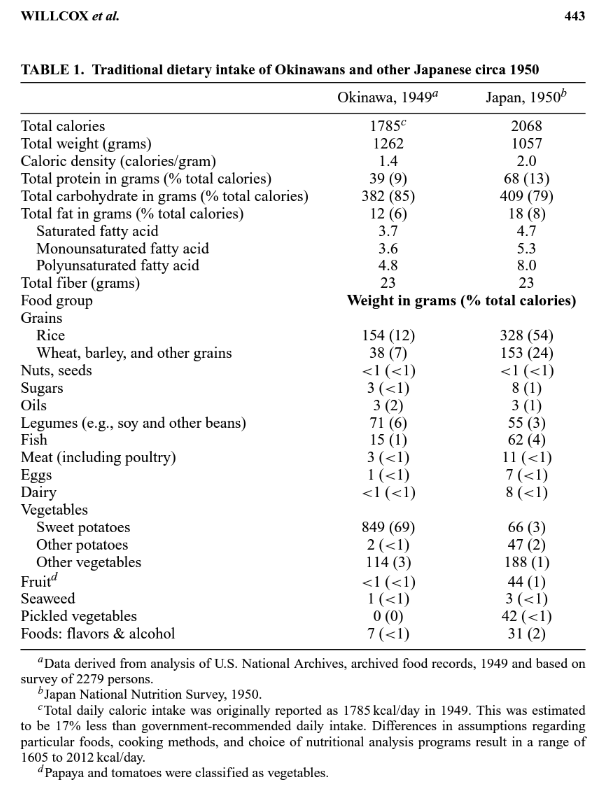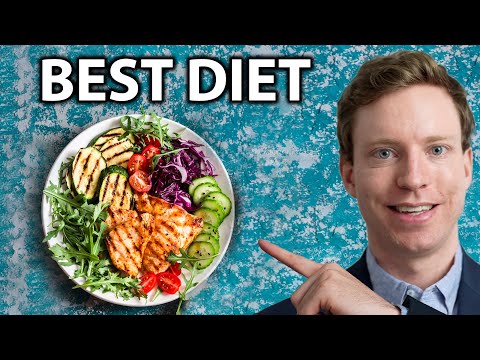Although their analysis may be true, that meat-eating is associated with longer life, they did not seem to take into account eating greens and other non-starchy vegetables and fruits explicitly. They didn’t even mention it. The major distinction made was between meat and carbohydrates as energy sources. Without controlling for the greens eaten, their conclusion is questionable.
More on low protein and longevity…in mice
FGF21 is required for protein restriction to extend lifespan and improve metabolic health in male mice
https://www.nature.com/articles/s41467-022-29499-8.pdf
Control diets (CON) contained 20% casein (by weight) as the protein source, while the low protein diet (LP) contained 5% casein (Casein comprises around 80% of the total protein in cow’s milk, while whey accounts for the remaining 20%. Whey is the liquid part of milk, while casein is the curds)
“Recent work indicates that the hormone FGF21 mediates the metabolic effects of protein restriction in young mice. Here we demonstrate that protein restriction increases
lifespan, reduces frailty, lowers body weight and adiposity, improves physical performance,
improves glucose tolerance, and alters various metabolic markers within the serum, liver, and
adipose tissue of wild type male mice. These data demonstrate that protein restriction in aging male mice exerts marked beneficial effects on lifespan and metabolic health and that a single metabolic hormone, FGF21, is essential for the anti-aging effect of this dietary intervention.”
This is consistent with a plethora of other studies showing lowered protein, especially BCAA, increases lifespan in mice. Animal protein is highest (aside from engineered plant foods) BCAA content.
I emailed authors asking about any measurements of p-mTOR and association with longevity benefits.
Meat protein consumption and associations in humans may be lumped into the MUCH larger problem in western societies, namely OVER-NUTRITION/EXCESS energy consumption, and the resultant obesity/diabetes crisis and plethora of comorbidities and lifespan reducing outcomes. So meat, per se, gets a bad rap due to it’s overconsumption and high calorific content. It likely has an outsized impact on longevity, but at LOW % MACROS on a low calorie/BMI diet protocol, may be perfectly fine. Humans most definitely evolved as omnivores…just look at your molars.
Okinawans, the “long lived” population, have been shown to be in a state of CR, ergo, likely low protein.
“A study of older Okinawans demonstrated that they appear to have undergone a mild form of prolonged DR for about half their adult lives”. By default, low protein. Long lived Sardinians/Okinawans/Cretans, wide variety of diet…commonality, low animal protein.
List of countries by food energy intake
The US is #2 in the world in energy consumption per capita, yet 54th in the world in life expectancy.
And drum roll…the US is the highest expenditure per capita in healthcare.
(filter in ascending for 2019)
Imagine the average life expectancy without the massive healthcare spending to keep Americans alive? The US would be way further down than 54th.
Diet compositions by macronutrient
Even with rapa, keeping BCAA low might have an additive effect–we just don’t know. I eat meat all the time, but I keep serving sizes quite small, typically one or two ounces.
Eating BCAA elevates mTOR, a fact. Leucine is a major trigger for mTOR/IGF-1.
I am trying to eat less and less animal protein as the years pass. I am already on a strict keto diet, so my meat/animal protein intake is below normal, and I continue to progress in muscle/health, so I keep tweaking away from animal protein, whilst maintaining muscle mass. I have come to see the light in muscle physiology: it’s the resistance exercise, NOT the protein that is critical. As Dr B once told me “resistance exercise builds muscle, not amino acids”.
But I cannot imagine going pure vegan and complete abstinence. There are way too many macronutrients in a varied, whole food animal protein diet. Besides, (full disclosure, foodie), what tastes better than wild venison or gorgonzola?
What really is Mediterranean diet? ![]() There is so much diversity from Greece to Spain in foods and diet. @AlexKChen posted this map of Europe in connection with life expectancy. Might be interesting to check the foods and diets in these regions… Probably people have.
There is so much diversity from Greece to Spain in foods and diet. @AlexKChen posted this map of Europe in connection with life expectancy. Might be interesting to check the foods and diets in these regions… Probably people have.
Just some common sense reinforcement here…
Hi CTStan. Do you take empagliflozin due to a diagnosis of type 2 diabetes?
No, the closest I’ve been to T2D was many years at borderline prediabetes.
I take empagliflozin to hopefully benefit from the pleiotropic effects of SGLT2 inhibitors in general and to optimize blood sugar.
It’s defined as the diet in the Med in the 60’s, it was coined by Ancel Keys.
From Wikipedia:
I tried following a version of the diet but my stomach cramped every morning (high fiber/low water).
Going to try using rice instead of whole grain pasta etc. I’m not going to follow it strictly, just try to get more of those foods and use olive oil instead of canola (it isn’t going to be good for lipids, but I can mitigate that in other ways). It was very tasty and I liked it other than that, good olives, olive oil, canned tomatoes, green leafy vegetable mix, lots of salt, etc. Going to supplement with protein powder too.
I agree, I find the evidence for methionine restriction compelling and have also been reducing meat consumption over the last 6 months. I do actually hit 1.5g/kg protein but get the vast majority from Collagen (30% glycine; 2% methioine). If I eat a large serving of meat in the evening my RHR increases and sleep quality decreases.
I think Attia is off the mark on this one.
The study includes people of all lifestyles and dietary habits. Their charts indicate that more meat equals longer life except in Southeast Asia.
Having said that I personally probably eat less meat than the average American.
“Our statistical analysis results indicate that countries with the greater meat intake have greater life expectancy and lower child mortality. This relationship is independent of the effects of caloric intake, socioeconomic status (GDP PPP), obesity, urbanization (lifestyle) and education.”
" the meat and dairy industries (much like the gas/petroleum industry aka Big Oil) have extremely powerful lobbies" – they really don’t. And their lobbying is stunningly ineffective compared to the agriculture industry lobbyists who have convinced everyone, including doctors and dietitians, that refined carbs are better for you than meat, eggs, and dairy.
I think the popular view is that meat, eggs and dairy is better than refined carbs.
Also it depends what type of meat and dairy we’re talking about and what condition.
I don’t see much objectionable about his conclusions. I assume he is wanting a ratio of 3:1 carbs to protein for muscle building and regeneration. I have cut out almost all refined carbohydrates from my diet because I do care about glucose spikes, but I haven’t cut out beans and vegetables that have carbohydrates. His Prolon fast mimicking diet is expensive, but that is when I use because I’m worried about losing lean muscle mass during an extended fast. The interesting thing is that I think a water only fast is easier to do than his program.
Thanks CTStan. Your response is valuable to me. I’m taking sirolimus and acarbose and will now learn about empagliflozin.
Who exactly is supposedly claiming that refined carbohydrates are healthy alternatives to anything? A whole foods plant based diet can entirely exclude refined carbs while minimizing meat/dairy/eggs if one so chooses. It doesn’t have to be one or the other.
It’s dangerous to think that meat and diary is better than refined carbohydrates in ALL cases.
Replacing SFA with carbohydrates, even refined, reduces apoB.
That means for many replacing meat and dairy for refined carbs.
SFA → PUFA and SFA → MUFA replacement is more powerful, but still.
Lots of people dying from heart attacks because of this.
Type 2 diabetes is caused from too much fat in the pancreas.
I’m not convinced that 30% overt fat is the way to go when our actual fatty acid requirements are so low. It’s more palatable, for sure, and if it gets people to eat more vegetables, that’s great. But everyone wants to think that rich, fatty foods are good for them, and anyone who tells them so becomes very popular.
I don’t believe it, for a number of reasons. I grew up with a Mediterranean diet. I visited the Mediterranean as a child where obesity was rampant among the vegetable eaters who doused their vegetables with massive quantities of ultra high phenolic olive oil. So I’m skeptical.
But I do believe in this.

from
https://citeseerx.ist.psu.edu/document?repid=rep1&type=pdf&doi=d60c36654c81af95c02fdf8e428971fab2f392c6
It’s a bit too spartan for me, so I aim for something in between the two extremes.
I am also highly influenced by David Jenkins and his very high fiber diet.
https://www.academia.edu/download/49831900/Effect_of_a_very-high-fiber_vegetable_fr20161024-6581-zcnqgd.pdf
I actually ate like this for decades, but at some point it became intractable due to my job and my aging GI tract. I now take digestive enzymes, pre- and probiotics so it’s more feasible again, but expensive!
Millet grain is good for “everything”. Why isn’t it as popular as rice?

